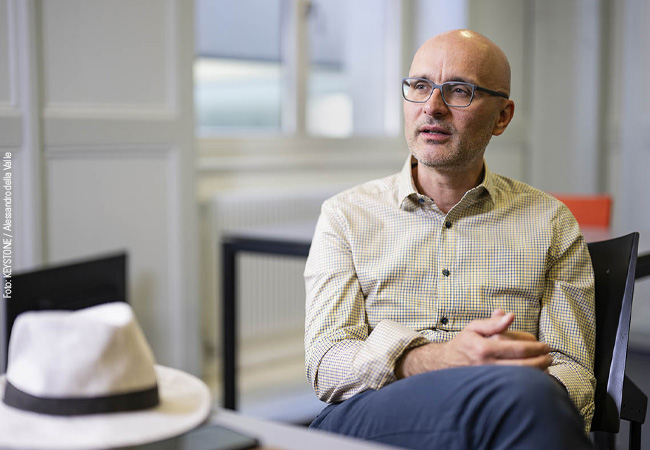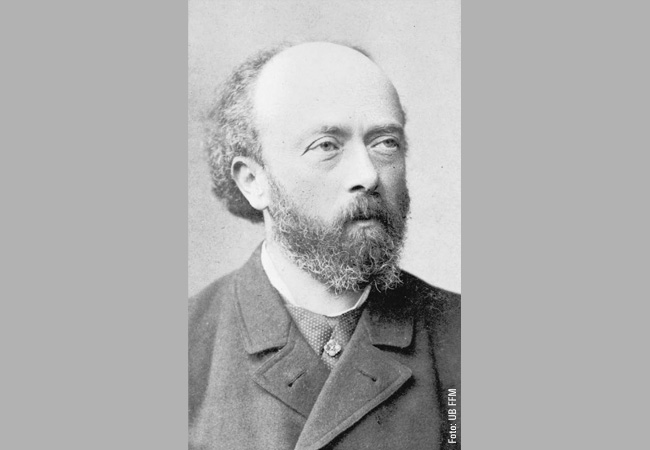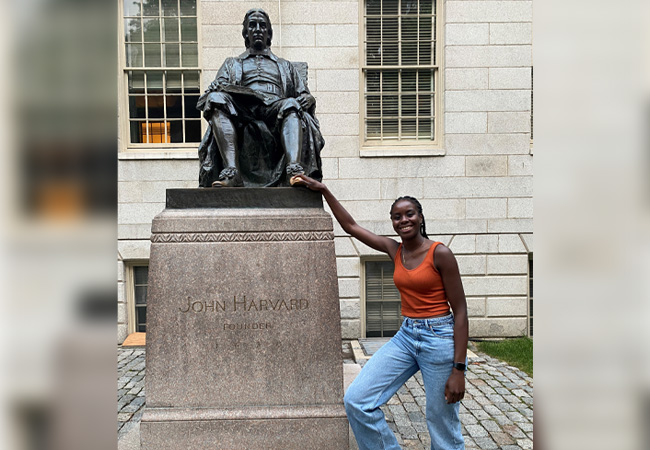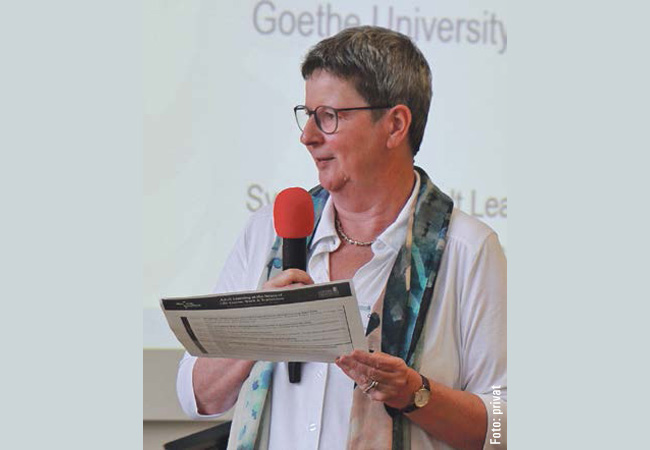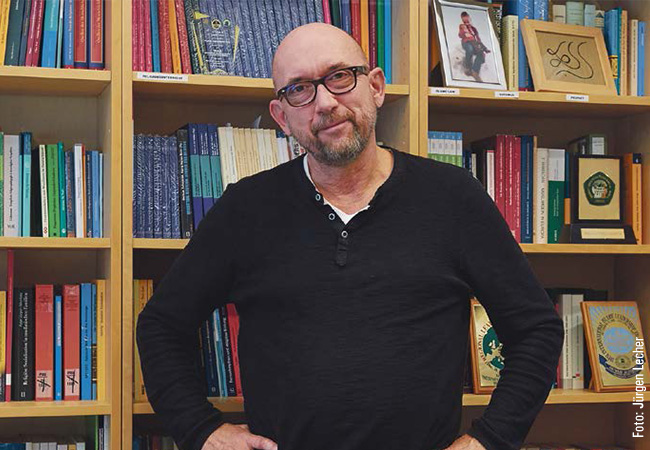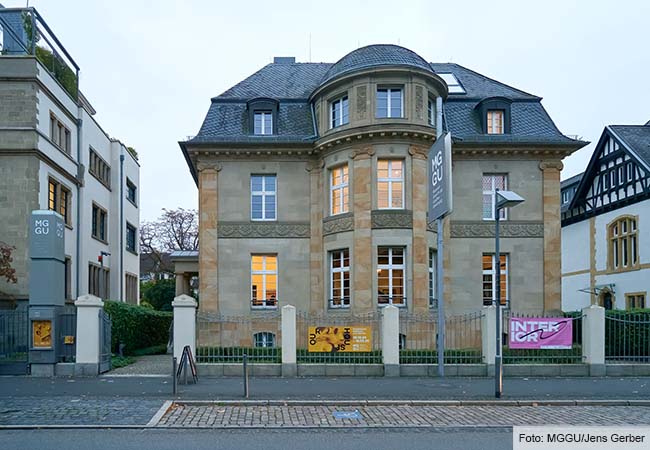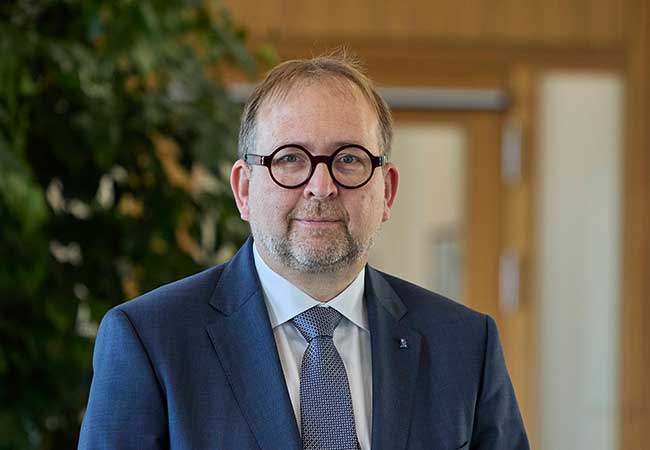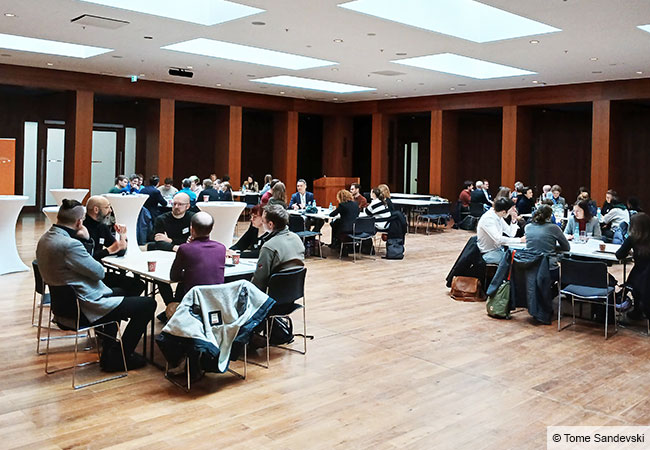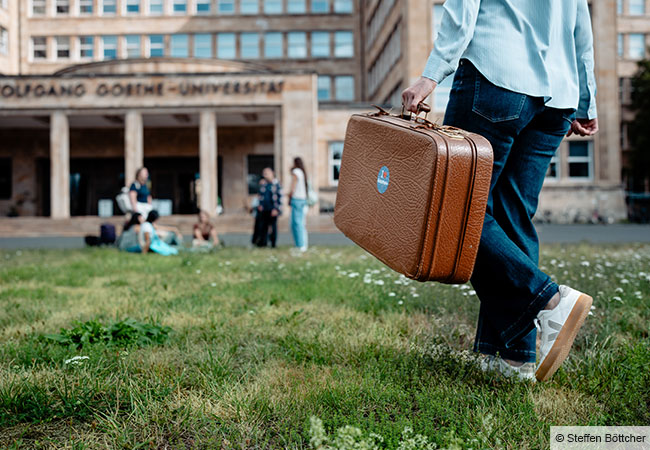A conversation with Armina Omerika, a scholar of Islamic Studies, and Christian Wiese, a scholar of Jewish Religious Philosophy, about the Gaza conflict’s reverberations at Goethe University
UniReport: How do you experience the situation on campus after the October 7 terror attacks and Israel’s ongoing military campaign in Gaza? What has been the response of your students?
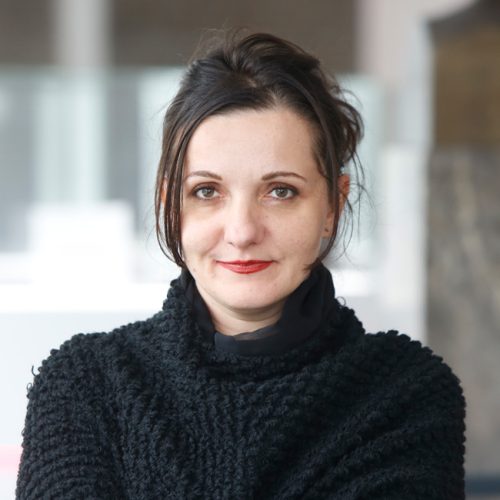
Armina Omerika (A.O.): To start with, I notice a whole array of emotions, primarily concern, pain and fear – not only among Muslim students, but the student body as a whole. I encounter people who have family members in Gaza, in the West Bank, in the heart of Israel. Some of them have lost friends and relatives. Many students with a migration history have experienced war or displacement either themselves or through their families. These experiences are now coming to the surface, and the daily pictures of war often trigger traumata. Those affected have to come to terms with the situation – and I am not sure whether they receive the necessary support to do so adequately. A concern among Muslim students especially is that anti-Semitism, which is deeply rooted in German society, is now being redefined as a mainly “imported” problem and in a way “offloaded” onto them – in effect only serving to marginalize migrants even more. I have also been able to observe – and not just among students and colleagues, but in general – a great anxiety about society’s overall shift to the right and the worry that Germany’s migration and integration policy will become ever more restrictive as a result of this conflict. At the same time, there is great concern that radical Islamist movements might exploit the current situation for their own benefit and gain more followers. Since the situation is creating a huge strain at many levels, I also worry about the mental health of young people in particular: Having already suffered through the pandemic, they are once again bearing a huge brunt. At the same time, during private discussions with Jewish friends, I have come to know that they have the same strong feelings of concern, pain and fear – not only of anti-Semitic hostility, but of a general increase in anti-Semitism. Common to all these experiences is the feeling of having been abandoned by society. However, even though this seems to be the one common denominator between the different groups, my impression at the moment is that there is little exchange between them.
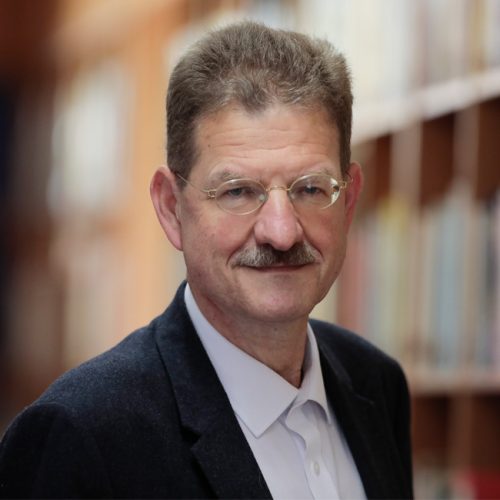
Christian Wiese (C.W.): In the first days after the terror attacks, there was an overwhelming sense of grief, pain and powerlessness among my Jewish and non-Jewish students, doctoral candidates and colleagues, many of whom have close ties to Israel. Discussions with Jewish students reveal great irritation, including about the different ways in which universities are responding to the increase in anti-Semitic statements and incidents. As a liaison professor at the Ernst Ludwig Ehrlich Scholarship Fund (ELES), this is something I also hear from students, who live in other German cities. Their positive experiences notwithstanding, the dominant feeling is that many people and institutions have not spoken up and that there is a general lack of solidarity. That being said, these discussions also show the extent to which the current reality is differentiated. Instead of resorting to the usual attributions of blame, according to which anti-Semitism is rooted above all in Islam, my discussions with Jewish students reflect a clear awareness that anti-Semitism has many different manifestations – especially in right-wing milieus, but also in mainstream society – and that the discussion about it must not be instrumentalized in the debate about migration. They also express the need for more dialog with Muslim students.
What is being done in the various subjects and faculties to address the topic and the current situation of students here at Goethe University? What needs have you identified?
A.O.: Our faculty has offered discussions in a protected space. So far, we have not yet organized any large-scale events on the subject. In fact, to date students are generally reluctant to start a conversation about the war in class. I am not sure why, but my guess would be that the general speechlessness turns into fear of saying something “wrong”, something for which one would definitely be attacked.
C.W.: In my classes, too, students have so far not actively mentioned the subject. That being said, the feeling of wanting to fill gaps in the knowledge about the Middle East conflict’s historical and political background has been around for a while.
A.O.: I can confirm that in-depth knowledge about the historical background is definitely lacking. More often than not, this knowledge is also selective and limited to aspects that reiterate one’s current point of view. There is a lot that needs to be done in this regard, but this job does not begin in the universities alone.
C.W.: That is why we want to become even more systematic in offering courses on the history of Judaism, Zionism and the State of Israel. We also have to ramp up our range of courses and events designed to foster a critical approach toward anti-Semitism.
How are you as researchers impacted by the situation?
C.W.: The main question that occupied me initially was a practical one: How to continue the joint research projects with our Israeli partners. Israeli universities are not just struggling to come to terms with the events themselves, they also have to deal with the fact that many of their students have been called up for military duty. But discussions with our Israeli partners haven’t been broken off – on the contrary. The Frankfurt-Tel Aviv Center for the Study of Religious and Interreligious Dynamics, co-founded with Tel Aviv University last December, will further intensify its activities, even if most events will initially have to be held in Germany. Other cooperative schemes are also becoming more important right now – including an interreligious project at the University of Haifa. I see very encouraging signals that the interactions between the religious communities in this multi-religious city have not broken down. Incidentally, it does not require official pronouncements for an action to be deemed valuable. Even the purportedly small act of letting the world know that contacts with colleagues in Israel are being maintained, holds value in and of itself.
Several of the events held recently here in Frankfurt and planned a long time ago also inevitably turned to the latest developments on the ground. However, it’s disturbing that at one of the recent conferences, we had to bring in security staff to guarantee the safety of Jewish and Israeli speakers and members of the Jewish Community.
A.O.: I find it depressing to hear things like that. Shortly after October 7, my colleagues at Frankfurt and Giessen had initiated a discussion among colleagues from our discipline, Islamic theological studies. A declaration that we signed has meanwhile been co-signed by many Islamic theology representatives and experts in Germany: It emphasizes, among others, the need to continue the work of interreligious projects, including those Jewish-Muslim cooperations. Many such formats already exist in the field of Islamic theology, for example in Tübingen, Berlin and Frankfurt, where a new professorship for Jewish-Islamic Relations was recently appointed – something pretty unique in Germany.
C.W.: I find it very important that such Goethe University initiatives are supported through joint research projects like “Dynamics of Religion” and the Frankfurt-Tel Aviv Center, which studies the many different facets of interreligious dynamics that exist between Judaism, Christianity and Islam, both past and present.
When it comes to the field of interreligious communication, what to your mind are the opportunities that exist for universities, particularly in the humanities, and what tasks should fall upon them? What are the expectations of municipal partners?
C.W.: I’m extremely grateful right now about Frankfurt’s long tradition of cooperation between various types of religious studies – Jewish, Christian and Islamic – both in research and in teaching. That’s not something that will discontinue all of a sudden – and thereby sends a clear signal to the society we live in.
A.O.: Definitely! In addition to specific projects, we know one another from our research institutions’ day-to-day work and from cooperative projects, including those in teaching. All of this will continue. That being said, there are some topics where I think joint seminars held right now would not be especially productive. In the medium term, however, I think it will become necessary to make joint offers that include multiple perspectives.
C.W.: If there’s one place suitable for such multiperspectivity, it must surely be the university, which is now called upon to provide spaces where various perspectives and narratives can be discussed in an atmosphere of mutual respect.
Our municipal partners, including the Jewish, Protestant and Catholic academies, also hope the university will take a differentiated approach to the current situation, look at the suffering on both sides, and contribute to an understanding of the causes of the conflict. The expectations of Frankfurt’s Jewish Community are on a different level, as it’s an important partner not only of our project to publish a “Synagogengedenkbuch Hessen” (book commemorating synagogues in Hesse), but also of the university as a whole. The welcome address by the head of the Jewish Community at our recent conference expressed the feeling of abandonment, and the expectations leveled at the university are clear: it must live up to its social responsibility – through research and teaching, as well as by taking a public stance.
Louise Zbiranski asked the questions.


